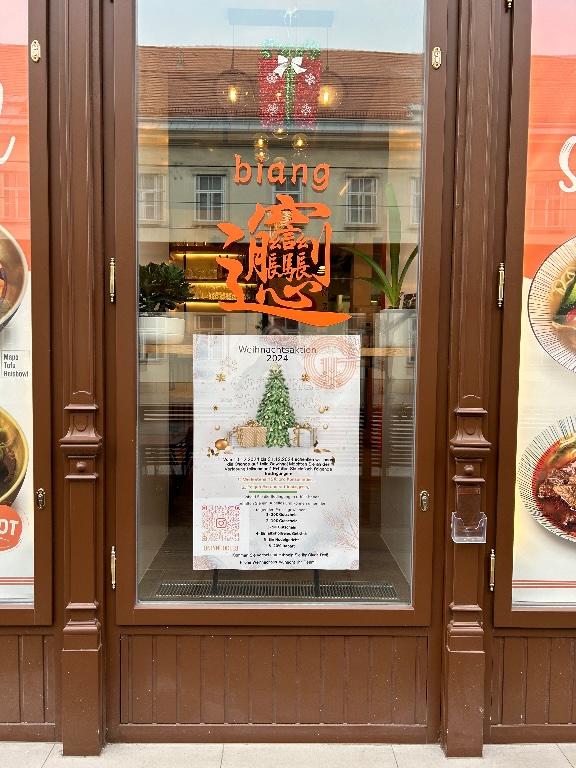Annals of Biang, Vienna edition
« previous post | next post »
From Haun Saussy:
Geoff Pullum's unfavorite Chinese character.
Pop quiz for genuine character connoisseurs / lovers / enthusiasts
How do we know that this character is to be pronounced in the second tone? Wiktionary. Wikipedia. As cited in the latter,
According to a China Daily article, the word "biang" is an onomatopoeia that actually refers to the sound made by the chef when he creates the noodles by pulling the dough and slapping it on the table.
Few people can cope with the full Monty for biang, so "phonetic substitutes like 彪彪面 (biāobiāomiàn) or 冰冰面 (bīngbīng miàn), as well as the pinyin, are often used instead." (Wikipedia)
I think Chris Button and / or Jonathan Smith may know the answer.
Selected readings
- "Annals of biang" (6/5/23) — Budapest edition
- "Biangbiang: authentic Xi'an grub in the heart of Philadelphia's University City" (6/9/22)
- "Murgers and biangbiang in London" (8/17/19)
- "Stroke order" (10/30/18)
- "Grids galore" (11/19/23)
- "Writing Chinese characters as a form of punishment" (11/1/15)
- Wikipedia article
- "A Chinese character that is harder to write than 'biang'" (7/30/20) — includes remarks about the essential squareness of Chinese writing
- "Rectilinear rectitude" (11/6/23)
- "The Awful Chinese Writing System" (Geoff Pullum, Lingua Franca, 1/20/16)
- "Starve Bird" (12/29/22)
- "Peace and Harmony" (10/16/10) — the most "Chinese" Chinese character
- "The infinitude of Chinese characters" (9/9/20) — with a humongous bibliography, a couple of entries featuring "biang"
If you're really obsessed with "biang", do this Google search: <"language log" biang>. That will lead you to lots of interesting posts that are not on Language Log.

Chris Button said,
January 5, 2025 @ 10:42 am
So, something aside from the syllable being a phonotactic violation?
Victor Mair said,
January 6, 2025 @ 6:41 am
That's a good start, Chris.
Chris Button said,
January 6, 2025 @ 9:12 am
Is it connected to the realization of tone, and perhaps tone sandhi effects, in the Shaanxi (or Xi'an) dialect of Mandarin?
Victor Mair said,
January 7, 2025 @ 7:56 am
Thank you for the astute follow-up question, Chris.
I'm working on a major post about this important matter.
Chris Button said,
January 7, 2025 @ 11:47 am
Looking forward to it. Just to elaborate on my first comment, even if biang (regardless of tone) were allowed in "standard" Mandarin, the second tone would not be allowed in any case. So we have a double violation of sorts: one on the phonemic level, and one on the tonemic level.